
State Department stops issuing all visitor visas for individuals from Gaza
Entities mentioned:
- State Department: Security, Control, Duty
- Marco Rubio: Security, Righteousness, Duty
- Hamas: Power, Control, Revenge
- Trump administration: Security, Control, Nationalism
- France: Security, Justice, Self-preservation
- Jean-Noël Barrot: Security, Justice, Duty
- Nour Attaalah: Self-preservation, Fear, Loyalty
- Palestinian Central Bureau of Statistics: Professional pride, Duty, Recognition
Article Assessment:
Credibility Score: 75/100
Bias Rating: 55/100 (Center)
Sentiment Score: 30/100
Authoritarianism Risk: 55/100 (Mixed/Neutral)
Bias Analysis:
The article presents a relatively balanced view, including perspectives from multiple sources and countries. However, there's a slight lean towards emphasizing security concerns over humanitarian aspects, which could be interpreted as a centrist to slightly right-leaning position.
Key metric: Immigration and Border Security
As a social scientist, I analyze that this article highlights a significant shift in U.S. immigration policy towards individuals from Gaza, reflecting heightened security concerns and stricter vetting processes. The sudden halt in visitor visas suggests a reactive measure to potential security threats, possibly linked to the ongoing Israel-Hamas conflict. This policy change aligns with a broader trend of increased scrutiny in visa issuance, as evidenced by the Trump administration's prior actions and similar measures taken by other countries like France. The impact on the Immigration and Border Security metric is substantial, as it demonstrates a tightening of borders and more stringent control over who enters the country, particularly from conflict-prone regions. This could lead to reduced immigration numbers from certain areas and potentially affect diplomatic relations. The article also touches on the broader humanitarian implications of the ongoing conflict, as indicated by the population decline in Gaza, which adds complexity to the immigration issue.
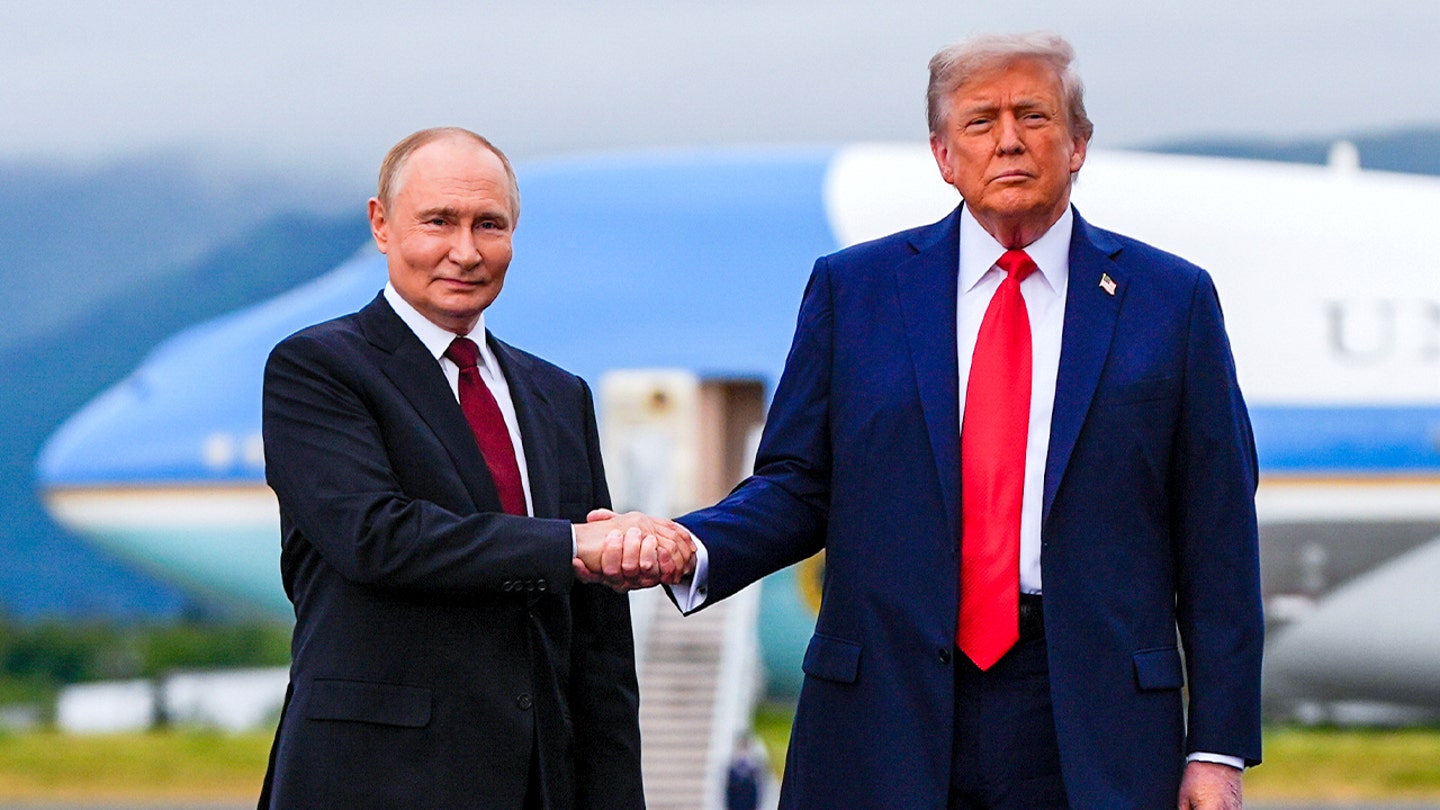
Trump closes out 30th week in office with 'very warm' high-stakes Putin meeting
Entities mentioned:
- Donald Trump: Power, Legacy, Influence
- Vladimir Putin: Power, Control, Influence
- Volodymyr Zelenskyy: Self-preservation, Unity, Justice
- Metropolitan Police Department: Duty, Security, Professional pride
- Brian Schwalb: Justice, Duty, Indignation
- Smithsonian: Professional pride, Duty, Integrity
Article Assessment:
Credibility Score: 65/100
Bias Rating: 70/100 (Lean Right)
Sentiment Score: 55/100
Authoritarianism Risk: 75/100 (Authoritarian Tendencies)
Bias Analysis:
The article leans right, favoring Trump's perspective and actions. It presents his decisions and statements largely without critique, while opposition views are given less prominence.
Key metric: International Relations and Conflict Resolution
As a social scientist, I analyze that this article highlights significant shifts in U.S. foreign policy and domestic governance under Trump's second term. The high-stakes meeting with Putin suggests a unilateral approach to resolving the Russia-Ukraine conflict, potentially sidelining traditional diplomatic channels and international bodies. The federal takeover of Washington D.C.'s police force and the review of the Smithsonian indicate a centralization of power and an attempt to reshape national narratives. These actions could have far-reaching implications for U.S. democratic institutions, international relations, and the balance of federal and local powers.
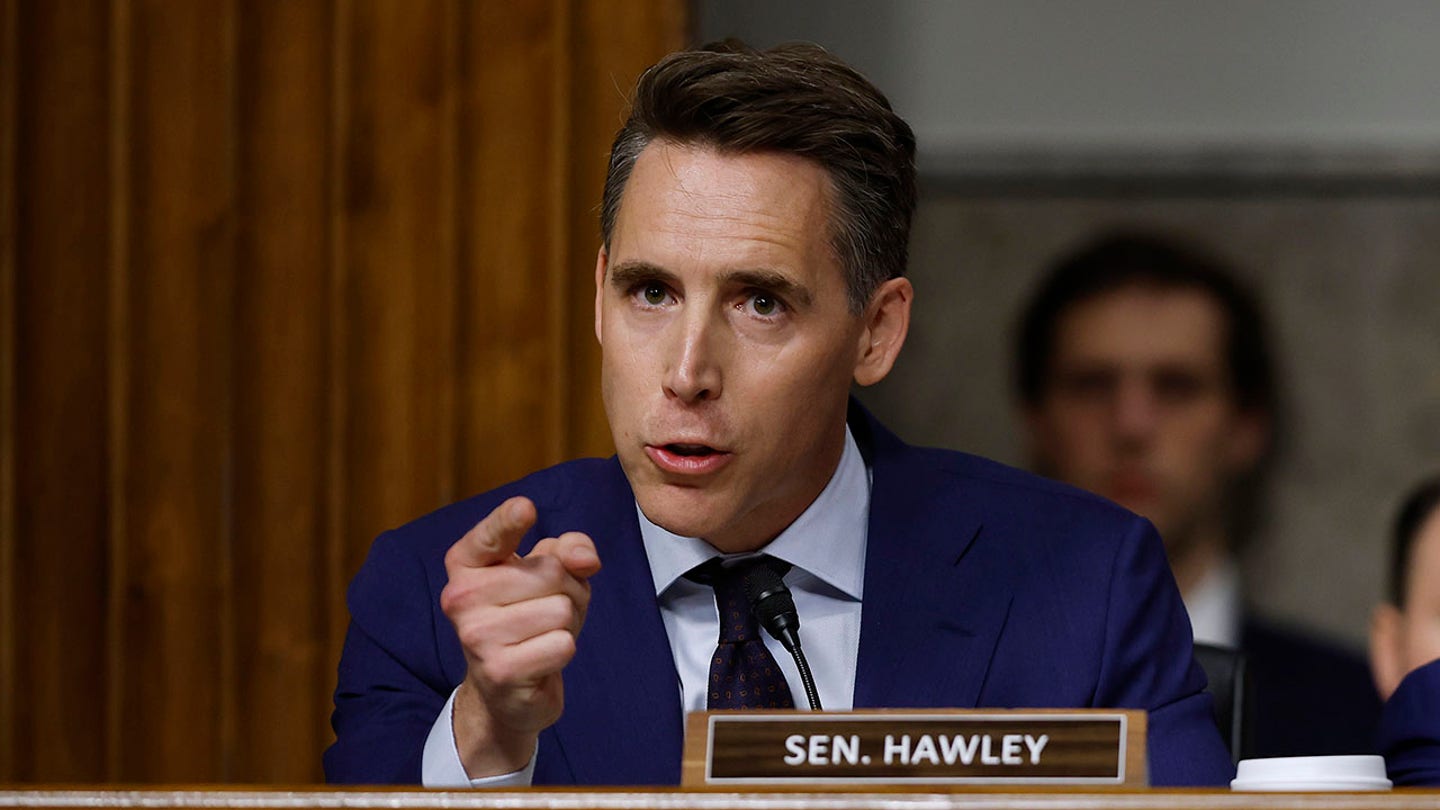
Hawley opens probe into Meta after reports of AI romantic exchanges with minors
Entities mentioned:
- Josh Hawley: Righteousness, Moral outrage, Justice
- Meta: Self-preservation, Influence, Control
- Mark Zuckerberg: Self-preservation, Power, Control
- Senate Judiciary Subcommittee on Crime and Counterterrorism: Justice, Duty, Security
- Congress: Justice, Control, Duty
Article Assessment:
Credibility Score: 75/100
Bias Rating: 55/100 (Center)
Sentiment Score: 30/100
Authoritarianism Risk: 25/100 (Generally Democratic)
Bias Analysis:
The article presents both sides of the issue, including Hawley's accusations and Meta's response. However, it gives more space to Hawley's perspective, which slightly tilts the balance but not significantly enough to push it out of the center range.
Key metric: Child Online Safety Index
As a social scientist, I analyze that this investigation into Meta's AI chatbot policies could significantly impact the Child Online Safety Index. The probe highlights potential gaps in online child protection measures, specifically within AI-driven interactions. This could lead to stricter regulations and improved safety protocols for AI systems interacting with minors, potentially enhancing the overall safety of children online. The investigation may also prompt other tech companies to review and strengthen their own policies, creating a ripple effect that could positively influence child online safety metrics across the industry.

California Democrats unveil redistricting map to wipe out 5 GOP seats, counter Texas plan
Entities mentioned:
- Democratic Congressional Campaign Commission (DCCC): Power, Control, Justice
- Gov. Gavin Newsom: Ambition, Power, Revenge
- California Democrats: Power, Control, Competitive spirit
- President Donald Trump: Power, Control, Self-preservation
- Republicans: Power, Control, Self-preservation
- Arnold Schwarzenegger: Justice, Duty, Righteousness
- National Republican Congressional Committee (NRCC): Power, Control, Competitive spirit
Article Assessment:
Credibility Score: 65/100
Bias Rating: 55/100 (Center)
Sentiment Score: 35/100
Authoritarianism Risk: 65/100 (Authoritarian Tendencies)
Bias Analysis:
The article presents viewpoints from both Democrats and Republicans, including criticisms of each side's actions. However, there's slightly more space given to Democratic perspectives and plans, balanced by including Republican and non-partisan voices.
Key metric: Political Polarization Index
As a social scientist, I analyze that this article highlights the intensifying political polarization in the United States, particularly through the lens of redistricting efforts. The proposed redistricting in California, aimed at countering similar efforts in Texas, demonstrates an escalation in partisan tactics. This tit-for-tat approach to redistricting, with each side accusing the other of 'rigging' the system, is likely to further entrench political divisions and erode trust in democratic processes. The willingness to alter established non-partisan systems for short-term political gain, as seen in Newsom's proposal to temporarily replace the independent redistricting commission, indicates a concerning trend towards prioritizing party power over institutional stability. This could lead to increased cynicism among voters and potentially lower faith in the electoral system, ultimately impacting the Political Polarization Index negatively.
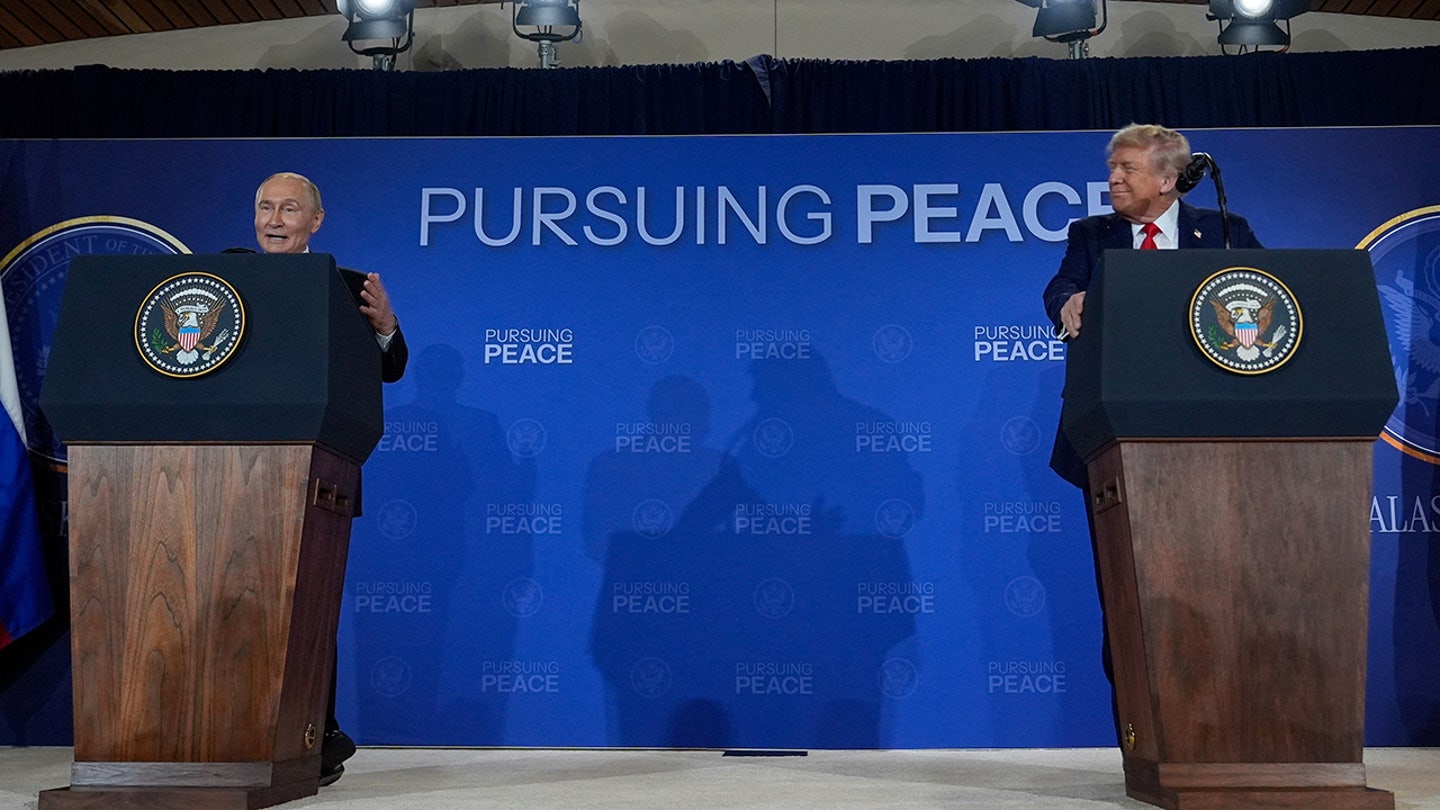
Putin backs Trump's claim that the Ukraine war would not have happened if he’d won 2020 election
Entities mentioned:
- Vladimir Putin: Power, Influence, Control
- Donald Trump: Ambition, Power, Influence
- Joe Biden: Duty, Influence, Security
- Volodymyr Zelenskyy: Self-preservation, Duty, Determination
Article Assessment:
Credibility Score: 55/100
Bias Rating: 65/100 (Lean Right)
Sentiment Score: 45/100
Authoritarianism Risk: 55/100 (Mixed/Neutral)
Bias Analysis:
The article leans right, favoring Trump's narrative and giving substantial space to Putin's supportive comments. It presents criticism of the Biden administration without equal counterbalance, suggesting a right-leaning bias in its framing and source selection.
Key metric: International Relations and Diplomacy
As a social scientist, I analyze that this article presents a significant shift in US-Russia relations under Trump's presidency. Putin's endorsement of Trump's claims about preventing the Ukraine war suggests a potential realignment of global power dynamics. This could impact US diplomatic standing, particularly with NATO allies and Ukraine. The article highlights a stark contrast between Trump's approach to Russia and that of the Biden administration, potentially influencing future US foreign policy. The meeting's optics and Putin's praise for Trump may raise concerns about US commitment to its traditional allies and democratic values on the global stage.

Housing chief: Opportunity zones change people's lives
Entities mentioned:
- Scott Turner: Professional pride, Duty, Influence
- U.S. Housing and Urban Development: Duty, Influence, Unity
- Lara Trump: Influence, Recognition, Ambition
Article Assessment:
Credibility Score: 50/100
Bias Rating: 65/100 (Lean Right)
Sentiment Score: 70/100
Authoritarianism Risk: 35/100 (Generally Democratic)
Bias Analysis:
The article leans right due to its featuring of a Trump administration official and Lara Trump, a member of the Trump family. The framing appears to present opportunity zones in a positive light without presenting alternative viewpoints or potential criticisms.
Key metric: Economic Mobility
As a social scientist, I analyze that this article focuses on the impact of opportunity zones on communities across the United States. The discussion of 'transforming' communities suggests potential improvements in economic conditions and quality of life for residents in these areas. This could positively affect economic mobility by creating new opportunities for employment, business development, and investment in previously underserved areas. However, the lack of specific data or examples in the article limits a comprehensive assessment of the actual impact on economic mobility.

Trump backs Putin's proposal for Russia to take full control of Donbas region in Ukraine
Entities mentioned:
- Vladimir Putin: Power, Control, Influence
- Donald Trump: Influence, Recognition, Legacy
- Volodymyr Zelenskyy: Determination, Duty, Self-preservation
- Friedrich Merz: Duty, Influence, Unity
Article Assessment:
Credibility Score: 65/100
Bias Rating: 55/100 (Center)
Sentiment Score: 35/100
Authoritarianism Risk: 60/100 (Mixed/Neutral)
Bias Analysis:
The article presents multiple viewpoints and cites various sources, including European diplomats and U.S. officials. However, it leans slightly towards emphasizing Trump's actions and their potential impact, which could be seen as centrism with a slight right-leaning tone.
Key metric: International Diplomatic Influence
As a social scientist, I analyze that this article highlights a significant shift in U.S. foreign policy regarding the Russia-Ukraine conflict. Trump's support for Putin's proposal to take control of the Donbas region could drastically alter the course of the war and international relations. This move potentially undermines Ukraine's sovereignty and NATO allies' united front against Russian aggression. The change from supporting a ceasefire to pushing for a peace agreement aligned with Russian interests suggests a major realignment of U.S. policy that could have far-reaching consequences for global geopolitics and the balance of power in Eastern Europe.
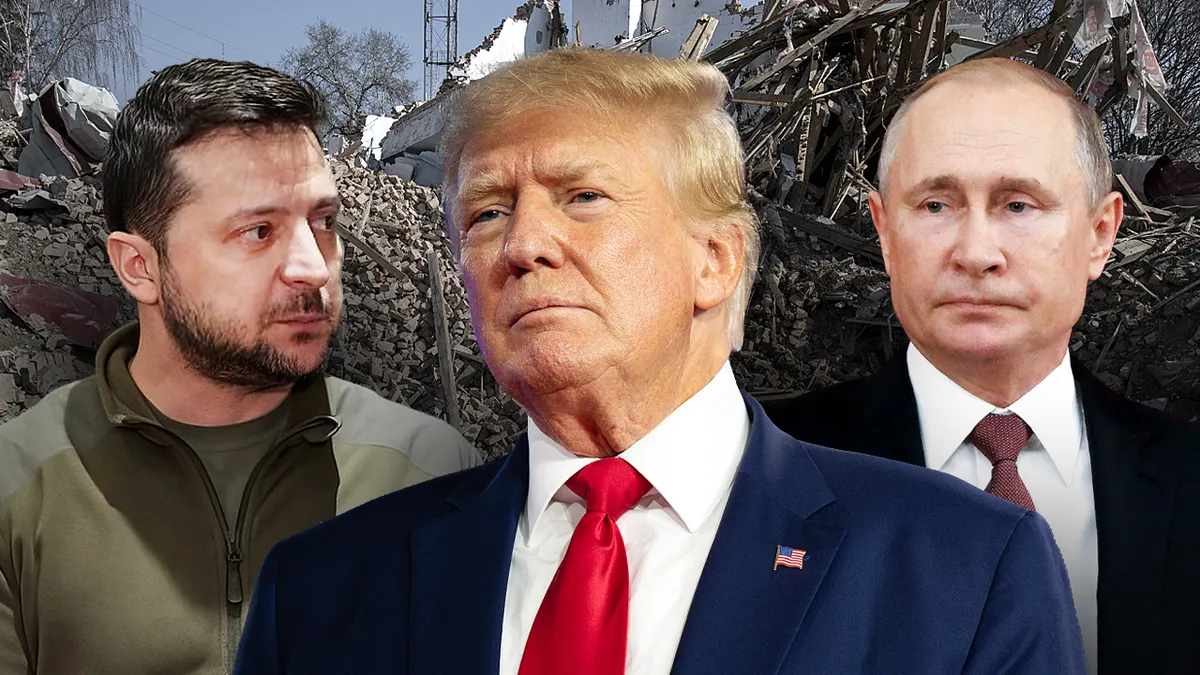
Trump: We're going straight to Russia-Ukraine peace deal, 'not a mere ceasefire'
Entities mentioned:
- Donald Trump: Ambition, Legacy, Power
- Vladimir Putin: Power, Security, Control
- Volodymyr Zelenskyy: Justice, Self-preservation, Unity
- Keir Starmer: Duty, Unity, Influence
- Emmanuel Macron: Influence, Unity, Duty
Article Assessment:
Credibility Score: 65/100
Bias Rating: 55/100 (Center)
Sentiment Score: 65/100
Authoritarianism Risk: 35/100 (Generally Democratic)
Bias Analysis:
The article presents multiple perspectives, including those of Trump, Putin, and Zelenskyy, providing a relatively balanced view. However, there's a slight emphasis on Trump's role and optimism about the peace process, which could indicate a subtle center-right lean.
Key metric: International Diplomacy Effectiveness
As a social scientist, I analyze that this article presents a significant shift in the approach to the Russia-Ukraine conflict, with Trump positioning himself as a key mediator aiming for a comprehensive peace deal rather than a ceasefire. This approach could potentially impact international diplomacy effectiveness by bypassing traditional diplomatic channels and leveraging personal relationships between leaders. The involvement of European leaders suggests a coordinated Western approach, but the effectiveness hinges on Putin's willingness to participate in a trilateral meeting and make concessions. The article implies a potential breakthrough, but the long-term sustainability of any agreement remains uncertain given the complex security concerns and historical context of the conflict.

Top House Dem sides with Mamdani critics on key controversy surrounding his campaign
Entities mentioned:
- Hakeem Jeffries: Political calculation, Duty, Self-preservation
- Zohran Mamdani: Ambition, Justice, Influence
- Andrew Cuomo: Revenge, Political calculation, Power
- Dora Pekec: Loyalty, Righteousness, Determination
- Alex Bradley: Moral outrage, Loyalty, Indignation
- Michael Koncewicz: Moral outrage, Indignation, Righteousness
Article Assessment:
Credibility Score: 70/100
Bias Rating: 55/100 (Center)
Sentiment Score: 30/100
Authoritarianism Risk: 35/100 (Generally Democratic)
Bias Analysis:
The article presents multiple perspectives, including critics and supporters of Mamdani. However, it gives more space to critical voices and frames the issue as problematic for Mamdani's campaign.
Key metric: Political Party Unity
As a social scientist, I analyze that this article highlights internal Democratic Party tensions surrounding a progressive candidate in New York City. The controversy over Mamdani's housing situation exposes ideological rifts within the party, with establishment figures like Jeffries distancing themselves from more left-leaning candidates. This impacts party unity by potentially alienating progressive voters and activists, while also revealing the challenges Democrats face in reconciling diverse policy positions within their coalition. The situation underscores the ongoing struggle between centrist and progressive factions in the Democratic Party, which could affect voter turnout and party enthusiasm in future elections.
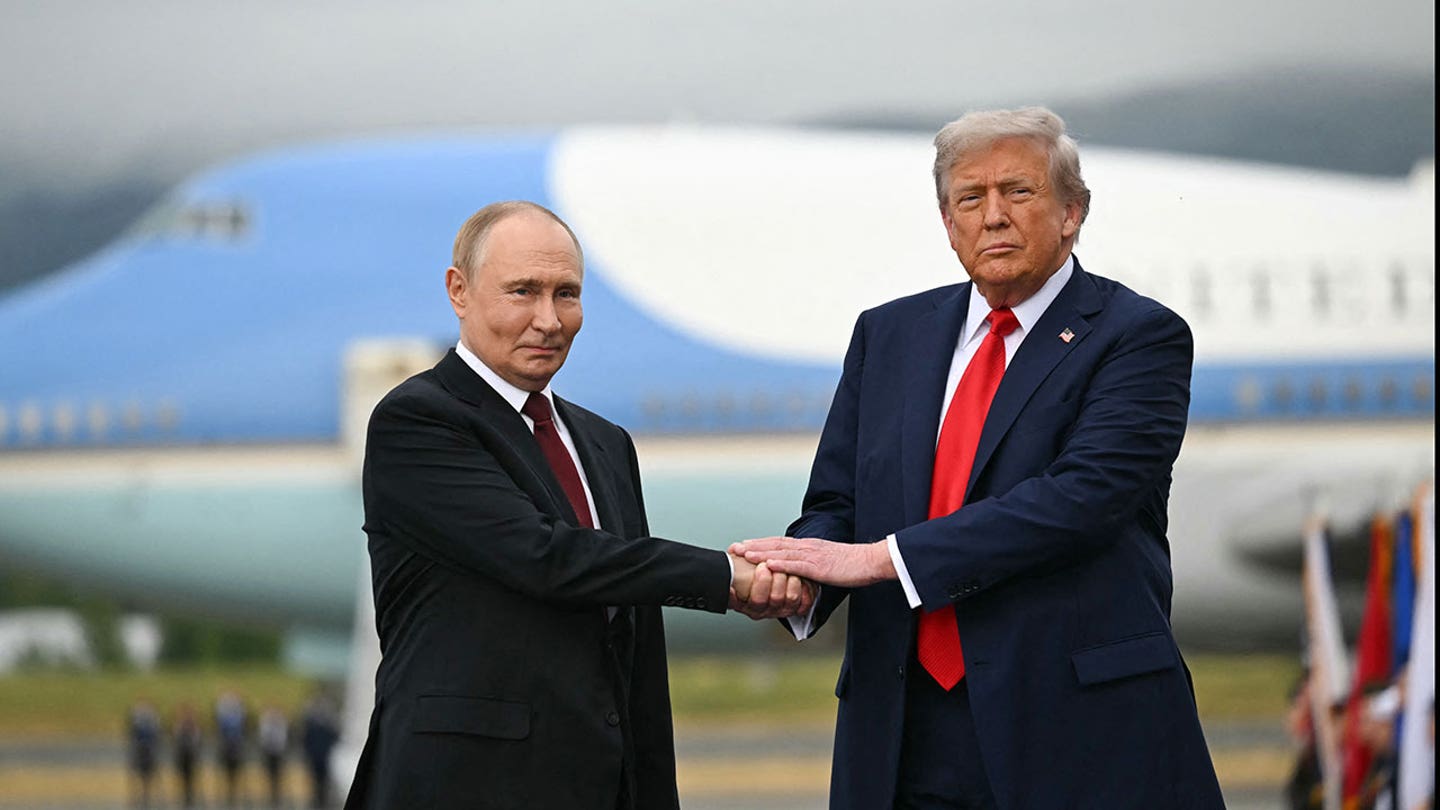
Trump reveals 10 striking takeaways from Putin summit in Hannity interview
Entities mentioned:
- Donald Trump: Power, Recognition, Self-preservation
- Vladimir Putin: Power, Control, Influence
- Sean Hannity: Loyalty, Influence, Professional pride
- Volodymyr Zelenskyy: Unity, Self-preservation, Duty
- Joe Biden: Power, Legacy, Duty
Article Assessment:
Credibility Score: 45/100
Bias Rating: 75/100 (Lean Right)
Sentiment Score: 70/100
Authoritarianism Risk: 55/100 (Mixed/Neutral)
Bias Analysis:
The article leans right, primarily due to its uncritical presentation of Trump's claims and the exclusive use of Trump and Hannity as sources. The framing portrays Trump in an overwhelmingly positive light while implicitly criticizing the current administration.
Key metric: International Relations and Diplomacy
As a social scientist, I analyze that this article presents a significant impact on US international relations and diplomacy. Trump's portrayal of his meeting with Putin as highly successful, coupled with his claims about Russia's newfound respect for America, could influence public perception of US-Russia relations. The emphasis on deal-making and Trump's willingness to participate in trilateral talks suggests a shift towards more direct, personalized diplomacy. However, the inclusion of comments about the 2020 election being rigged introduces domestic political controversy into foreign policy discussions, potentially undermining the credibility of US democratic institutions on the global stage. The article's framing of Trump as a key mediator between Russia and Ukraine, while sidelining current administration efforts, may create confusion about the official US stance on the conflict.